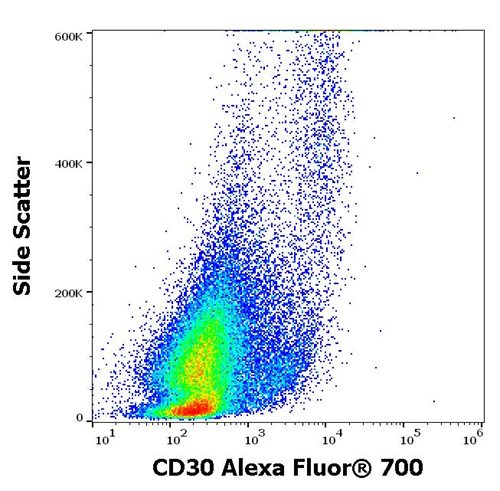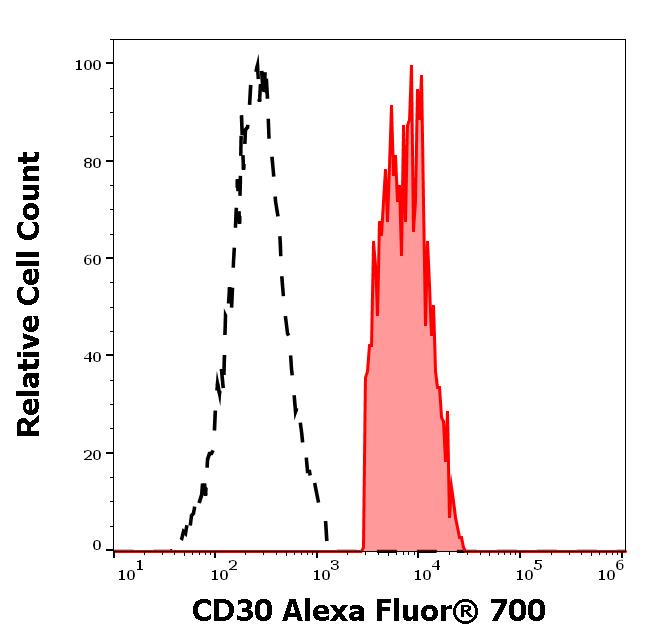Anti-CD30 / Ki-1 Monoclonal Antibody (Clone:MEM-268) Alexa Fluor 700

Figure 1:Flow cytometry surface staining pattern of human PHA stimulated peripheral blood mononuclear cells stained using anti-human CD30 (MEM-268) Alexa Fluor® 700 antibody (4 μl reagent per milion cells in 100 μl of cell suspension).
Roll over image to zoom in
Shipping Info:
For estimated delivery dates, please contact us at [email protected]
| Format : | Purified |
| Amount : | 100 tests |
| Isotype : | Mouse IgG 2a, kappa |
| Purification : | Purified by protein-A affinity chromatography |
| Content : | Stabilizing phosphate buffered saline (PBS), pH 7.4, 15 mM sodium azide |
| Storage condition : | Store at 2-8°C. Do not freeze. |
CD30 is a type I transmembrane glycoprotein of the TNF receptor superfamily. CD30 was originally identified as a cell surface antigen of Hodgkins and Reed-Sternberg cells using monoclonal antibody Ki-1. The ligand for CD30 is CD30L (CD153). The binding of CD30 to CD30L mediates pleiotropic effects including cell proliferation, activation, differentiation, and apoptotic cell death. CD30 has a critical role in the pathophysiology of Hodgkin's disease and other CD30+ lymphomas. CD30 acts as a costimulatory molecule in thymic negative selection. In addition to its expression on Hodgkin's and Reed-Sternberg cells, CD30 is also found in some non-Hodgkin's lymphomas (including Burkitt's lymphomas), virus-infected T and B cells, and on normal T and B cells after activation. In T cells, CD30 expression is present on a subset of T cells that produce Th2-type cytokines and on CD4+/CD8+ thymocytes that co-express CD45RO and the IL4 receptor. Soluble form of CD30 (sCD30) serves as a marker reflecting Th2 immune response.
Flow cytometry: The reagent is designed for analysis of human blood cells using 4 μl reagent / 100 μl of whole blood or 106 cells in a suspension. The content of a vial (0.4 ml) is sufficient for 100 tests.
For Research Use Only. Not for use in diagnostic/therapeutics procedures.
|
There are currently no product reviews
|

















.png)











